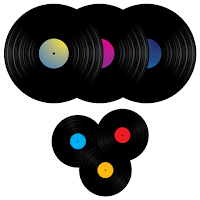There is nothing like a Wang Chung song heard in the carpool line to make one think about Emile Durkheim’s theory of Collective Conscious.
Or maybe it’s just me.
They talked of how the Gen Xer’s were different from the previous generation of “Baby Boomers” (1946-1964). The segment had its usual background of music.
Music is something that separates generations yet can unite us so strongly as well.
Music is something that separates generations yet can unite us so strongly as well.
But what was I subsequently listening to on my iPod connection in the car? Crosby, Stills and Nash’s “Cathedral.”
“And my head didn’t know just who I was
And I went spinning back in time.”
Wang Chung and Crosby, Stills and Nash. Now there are two groups from successive generations that would get my head spinning back in time at a stoplight. But both brought me back to a place where I probably last heard both songs. College. The occasional party. Dorm Life. Rushing for the Shoreland bus. Chemistry 105, 106, 107. Self, Culture and Society...
Music is really a tool for the collective conscious.
The French Sociologist, Emile Durkheim (1858-1917) wrote how an autonomous individual comes to identify with a larger group or structure. He coined the phrase "the collective conscious" to describe the beliefs or sentiments that connect you to that group.
Think memes.
I recently watched Bill Maher’s “Religulous” several Saturdays ago with my teenage daughters. I run a pretty liberal household. Liberal thinking anyway. One of the funniest segments was when Maher spoke with a Muslim Imam about religion and the Imam’s cell phone went off. It played “Kashmir” from Led Zeppelin. I yelled out in a fit of laughter “Oh my God, Kashmir!” to my daughters as they did a collective eye roll at both the obscure name and the religious reference. They are accustomed to my spontaneous outbursts of absolutely useless trivia. Sure enough Maher also remarked “Kashmir!” Mom’s good memory and near constant music playing in the car have repercussions. But it linked me to a certain generation (Maher’s too) of children of the late 1970’s/Early 1980’s that would find humor in that observation.
The French Sociologist, Emile Durkheim (1858-1917) wrote how an autonomous individual comes to identify with a larger group or structure. He coined the phrase "the collective conscious" to describe the beliefs or sentiments that connect you to that group.
Think memes.
I recently watched Bill Maher’s “Religulous” several Saturdays ago with my teenage daughters. I run a pretty liberal household. Liberal thinking anyway. One of the funniest segments was when Maher spoke with a Muslim Imam about religion and the Imam’s cell phone went off. It played “Kashmir” from Led Zeppelin. I yelled out in a fit of laughter “Oh my God, Kashmir!” to my daughters as they did a collective eye roll at both the obscure name and the religious reference. They are accustomed to my spontaneous outbursts of absolutely useless trivia. Sure enough Maher also remarked “Kashmir!” Mom’s good memory and near constant music playing in the car have repercussions. But it linked me to a certain generation (Maher’s too) of children of the late 1970’s/Early 1980’s that would find humor in that observation.
These odd musical flashbacks connect certain individuals together, whether it is people on the cusp of Gen X or a “baby boomer.” Are we all just big Venn diagrams with overlapping edges of connections that provide us with a laugh, a good cry or maybe just an “aha” moment? I think so. It’s the ultimate feeling that you belong to something. Durkheim knew this but applied it to religious groups. Facebook knows this now and applies it to “likes” or “groups”. Durkheim and Zuckerburg are geniuses in human behavior. I think there’s a Sociology thesis in that idea somehow.
I hated “Sosh” in college even though I had one of the best professors who specialized in game theory and wrote books about the Olympics. The theories seemed dry, without context and I dreaded the near- weekly paper assignments. Little did I know that the theories studied would come rushing back to me in an early morning car line with just the slightest of provocation. Music was the meme. Maybe I had learned something after all.
But I still don’t know what a Wang Chung is.




No comments:
Post a Comment